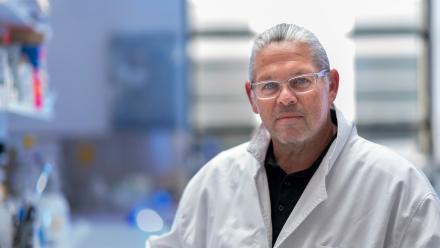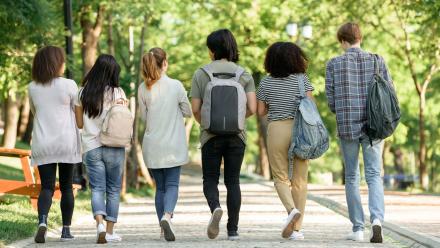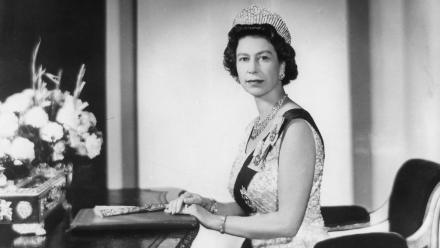VC's update – Spring equinox and research breakthroughs
Hello everyone
The spring equinox has passed with our days now longer than our nights! My vines have responded to spring and burst their buds, and I have been lucky enough to get some exercise going up and down the 4.4 kilometres of vine rows tending to them, something my doctor thinks is probably good for me. They are less sure about the wine, but I have been counteracting by finding interesting ways to eat kale from the garden.
I hope everyone enjoyed their ANU holiday last week. It's a good reminder that we all need to take a break from time to time, to look after ourselves and our health. I encourage you all to think about taking some of your annual leave to reset - even if it doesn't involve an interstate trip. I've been doing this, and really recommend it.
Appearing on Q&A last night without politicians was an interesting change. It was kind of fun discussing nuclear submarines, mandatory vaccination, and cosmology with a half a million friends. I was particularly impressed with just how well the younger members of the panel did in connecting with the questions. I love to be shown up by the next generation. Dr Vanessa Pirotta, whale snot researcher, was proudly telling me about her time at ANU as an undergraduate before we went to air - she was lamenting the fact that Canberra didn't have whales beyond sky whales. The media team were concerned both about my choice of sea-otters as my favourite animal, and the fact they hadn't prepped me for that question.
On Friday 8 October, it's World Mental Health Day. In the past, mental health was not something that was really discussed openly. I'm glad this is changing, but as a society we need to continue our efforts to better support everyone's mental health. This year, ANU will host a panel discussion that focuses on isolation and connectedness. Isolation is something that everyone has experienced, particularly over these past two years. I would encourage you all to attend. You can register here.
In a great story, based on outstanding basic research from our chemists, an exciting new start-up company called Samsara is creating a new technology to break down recycled plastic to its core elements, monomers. This start-up was instigated by Woolworths group, who wanted to make sure they could really recycle plastic in the future, and put together by CSIRO's Main Sequence Ventures.
Our ANU researchers 'plastic-eating' enzymes were realised to be a game changing piece of technology, and look to be able to take a mass plastic recycling waste, and turn it into the raw ingredients from which plastics are made. This start-up has the potential to create a highly efficient way of fully recycling plastics that if successful, will have global ramifications. Well done to everyone involved - and is a great demonstration of how we can work with industry partners and CSIRO to translate our foundational research into the revolutions in technology that help ensure future prosperity.
And in another breakthrough perhaps most important for Australia, our colleagues at the ANU Medical School have discovered a simple yet potentially lifesaving technique to help in the event of a shark attack where there is injury to the leg region. If you are a bit squeamish, brace yourself. Surfer and emergency physician Dr Nicholas Taylor and his team have discovered that you can apply pressure using your own fist to the midpoint between the 'hips and bits' to stop the blood flow to the lower limb by compressing the femoral artery. This simple technique stopped 100 per cent of the blood flow in 75 per cent of the study's participants - more effective than a tourniquet. Remember this next time you are at the beach - it can truly save your own or someone else's life. You can read the full story here.
One of the key issues that is holding ANU back is our less-than-perfect digital systems and processes. The Digital Master Plan is now available and presents how we are going to dramatically raise our game over the coming 5 years. Everyone can expect to have their services improve with our goal that our digital interactions will be intuitive, safe, and easy. The first cabs off the rank will be to address urgent priorities including cybersecurity, and privacy, build the technological foundations and governance that will underpin the whole endeavour, and focus first on delivering a much better digital experience for our students. I thank the many people have put a great deal of effort into shaping this work, and everyone who took the time to contribute as part of the consultations.
Finally, it has been a good week for Chemistry. I would like to congratulate Professor Michelle Coote who is the recipient of the Royal Australian Chemical Institute's 2021 Leighton Memorial Medal - a premier award of the Institute. I hope you can celebrate this achievement in appropriate way despite the lockdown!
Have a great weekend everyone.
Brian


